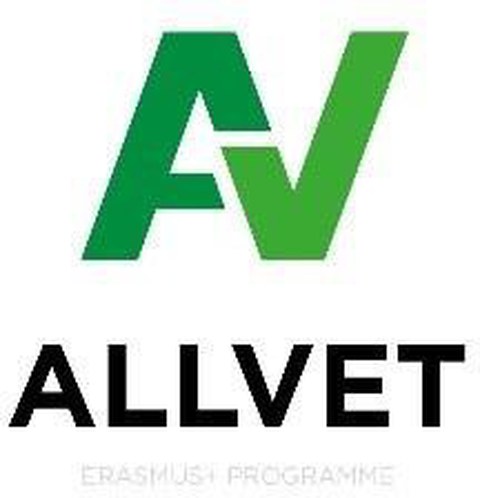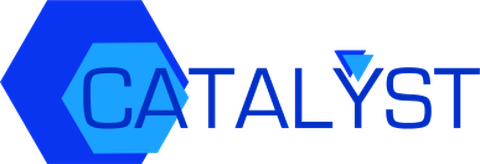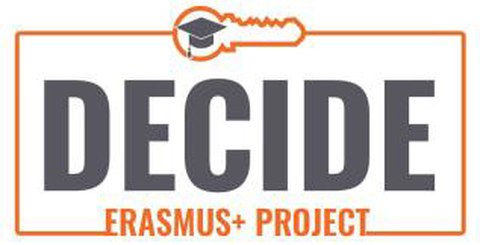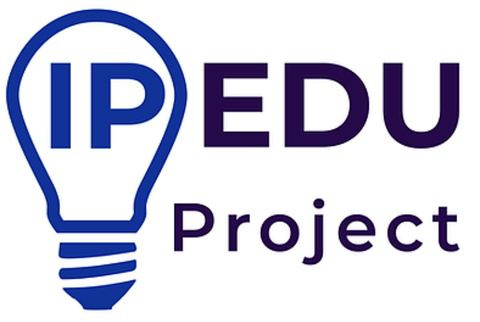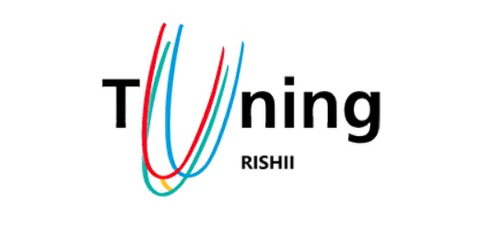CBHE-Projects
Table of contents
- ALLVET Erasmus+
- Armenian Network of Excellence in Bioproducts Science and Technology (ABioNet)
- CONTESSA: Contemporary Teaching Skills for South Asia
- Cummunicative Approaches in University Vocational Teaching Methodology (CATALYST)
- DECIDE CBHE PROJECT - Developing Services for Individuals with Disabilities
- Developing Trans-regional information literacy for lifelong learning and the language economy (DIREKT)
- FRACTION - Developing future-oriented academic curricula in Teacher Education with innovative methodologies for Nex-Gen Asian HEIs
- Introducing Intellectual Property Education for Lifelong Learning and the Knowledge Economy (IPEDU)
- Resources for Internationalisation of Higher Education Institutions in India / RISHII
- SMARTI – Support for Innovative Methodology, Approaches and Tools for Teaching through the Medium of English in order to improve Educational Yield, Sustainability and Internationalization
- SUCCESS - Solutions for Unified Communication Competences for Engineering Students and Specialists
ALLVET Erasmus+
The ALLVET Erasmus+ project is designed to complete a Higher Education and Vocational Educational Training alliance establishment according to Bologna principles implementation via Vocational Education Training teachers‘ capacity building for Russian and Kazak project partners (five and three respectively), with five European partners involved, with the University of Kragujevac, Serbia being the coordinating institution.
The objectives link in clearly with the development of Higher Education sector within society at large through modernization and internationalization benefits for vocational education such as improved student and teacher proficiency, better preparedness for the global market, enhanced job prospects, broader professional collaboration, greater visibility and higher university rankings.
TU Dresden is one of the EU programme partners in the ALLVET project, helping to design, and deliver, the negotiated training programmes using in- house expertise and experience of such activity. It has overall responsibility for the project preparation work.
For more information, you can reach the website of the ALLVET project via the following link: http://allvet-erasmus.com/uk/
Armenian Network of Excellence in Bioproducts Science and Technology (ABioNet)
The main objective of ABioNet project is at filling the gaps between the education, entrepreneurship and innovation. The integration newly developed practice based Msc programme with student startup projects in biobased production will be a generator of the links between the bio production and education sectors. Another component is the development short term training courses for different stakeholders to formulate skills in bio product design and production.
Technische Universität Dresden is involved in the project with partner universities from Armenia, Greece, Italy and Portugal.
For more information, you can reach the website of the ABioNet project via the following link: http://abionet.eu
CONTESSA: Contemporary Teaching Skills for South Asia
CONTESSA provides a variety of professional development skills for effective teaching. Teachers need to be competent in not only basic skills, but contemporary skill sets. CONTESSA has an impact on the way teacher trainers teach their student teachers and consequently on the way teachers teach their students in schools.
For more information, you can reach the website of the CONTESSA project via the following link:: https://contessa-project.eu/
Cummunicative Approaches in University Vocational Teaching Methodology (CATALYST)
CATALYST stands for Communicative Approaches in University Vocational Teaching Methodology focusing on Improving Educational Yield and Sustainability.
The specific objective of CATALYST is the development and implementation of a comprehensive pedagogical Core Curricula using an ECTS/Tuning Modular design for university vocational teaching for Vietnam and Laos.
Among 13 academic partners in 6 countries, Technische Universität Dresden as former part of the Soviet bloc of East Germany has significant experience working with universities from the central European and former USSR regions.
For more information, you can reach the website of the CATALYST project via the following link: https://catalyst-erasmus.com
DECIDE CBHE PROJECT - Developing Services for Individuals with Disabilities
The DECIDE Erasmus+ project aims to promote the rights of people with with special needs in Uzbekistan, Tajikistan and Kazakhstan to access education and to education and to participate in everyday life, at the same timeagainst discrimination, in line with the Bologna Process and the UN Convention and the UN Convention on the Rights of Persons with Disabilities. The implementation of a comprehensive and sustainable curriculum is aimed at teacher trainers and lecturers (universities); policymakers of government and state employees as well as to employees of non-governmental organizations in partner countries.As one of the primary partners of the DECIDE project, the Technische University of Dresden develops curricula based on ECTS credits and at the same time supports the project with its expertise and experience in this field.
For more information, you can reach the website of the DECIDE Erasmus+ Project via the following link: http://www.decideproject.ie
Developing Trans-regional information literacy for lifelong learning and the language economy (DIREKT)
The DIREKT project aims to instill best Information Literacy practices in higher education systems in the Russian Federation, Kazakhstan & China.
The project is much needed in order to up-skill library and academic staff specifically their transferable, pedagogical and lifelong learning skills in the Information Literacy field thereby developing capacity and affecting all stakeholders including students.
The project aims for improved, more relevant university services in the Information Literacy area leading to better awareness, modernization and improvements in teaching and learning.
As one of the 14 partner universities of the DIREKT, Technische Universität Dresden belongs to a small group of 11 German elite universities and has extensive EU project experience having been involved in over 50 Tempus projects.
For more information, you can reach the website of the DIREKT project via the following link: https://direkt-cbhe.com
FRACTION - Developing future-oriented academic curricula in Teacher Education with innovative methodologies for Nex-Gen Asian HEIs
CODIP is designing a curriculum for a one-year professional development program for university faculty in China, India, and Vietnam. This will be implemented in 2021. Further information is available on the project website: https://fraction.pwr.edu.pl/
Introducing Intellectual Property Education for Lifelong Learning and the Knowledge Economy (IPEDU)
IPEDU is a project aimed at introducing education in the field of Intellectual Property, in the curriculum of technical Universities, through training the teaching, support staff and librarians in IP.
The objectives of the IPEDU Project are to set out and forecast the needs of the todays and future labour market in the field of Intellectual Property and to develop relevant learning methodologies, to identify the gap between skills acquired in higher education and the demands of the real labour market, to identify and implement best practices and to design methods for the protection of Industrial Property.
As project partners, TU Dresden and other technical universities will be able to provide, teaching, support staff and through libraries or other internal structures, courses in the field of Intellectual Property, focusing on the information relevant to the field in which they operate.
For more information, you can reach the website of the IPEDU project via the following link: https://www.ipeduproject.eu
Resources for Internationalisation of Higher Education Institutions in India / RISHII
RISHII lays its focus on Curriculum Internationalisation permits to contribute to the CBHE goals of achieving equity and democratisation. Curriculum Internationalisation is the only form of internationalisation activities that ensures that every student who joins a higher education programme benefits from internationalisation efforts. It is Internationalisation-FOR-ALL, regardless their caste or financial means or socio-economic capital more generally.
The projects goal is to contribute to the modernization of Indian Higher Education through equipping Indian Higher Education Institutions with procedures, tools, human resources and continuous professional development mechanisms necessary for Curriculum Internationalisation and creating institution-wide thriving cultures of Internationalisation-FOR-ALL.
More than 5000 international students from 125 countries worldwide study at TU Dresden, one of the partner universities of the RISHII project. They appreciate the top quality of studies which are open to all who meet the academic and language requirements. Without tuition fees.
For more information, you can reach the website of the RISHII project via the following link: http://open.rishii-project.com
SMARTI – Support for Innovative Methodology, Approaches and Tools for Teaching through the Medium of English in order to improve Educational Yield, Sustainability and Internationalization
A new EU Erasmus+ capacity building in higher education (CBHE) project, entitled SMARTI of which TUD is the coordinating partner, began at the beginning of 2021. It is financed by the European Union. The project run time is for three years, from January 2021 to 2024. The aim of the project is to further the use of the English language in Russia and Armenia to teach academic BAs and MAs in science, maths, medicine, engineering, IT etc., where English is not the official language, and in which the students’ first language is not English. This will lead to the internationalisation of HE programmes in both Russia and Armenia, with concurrent benefit to TUD, as well as the EU partners (known as Programme Countries) in Portugal (Universidade Catolica Portugal- UCP), Latvia (Riga Technical University- RTU), and in the UK (Liverpool John Moores University- LJMU). There are 5 Russian and 6 Armenian partner HE institutions in all, as well as one associate partner.
For more information, you can reach the website of the SMARTI project via the following link: https://smarti-erasmus.eu
SUCCESS - Solutions for Unified Communication Competences for Engineering Students and Specialists
Project SUCCESS, abbreviation for Solutions for Unified Communication Competences for Engineering Students and Specialists, is a transnational European project co-funded by the European Union, managed by five partners from four European countries (Latvia, Spain, Germany and France).
One of the main goals of this project is to encourage the use of creative learning and teaching methods by offering student-centred curricula that will meet learning needs, eliminating communication ability mismatches in English, and providing complete coverage of communication skills needed by the labour market for technical communication.
Further information is available on the project website: https://project-success.org/
